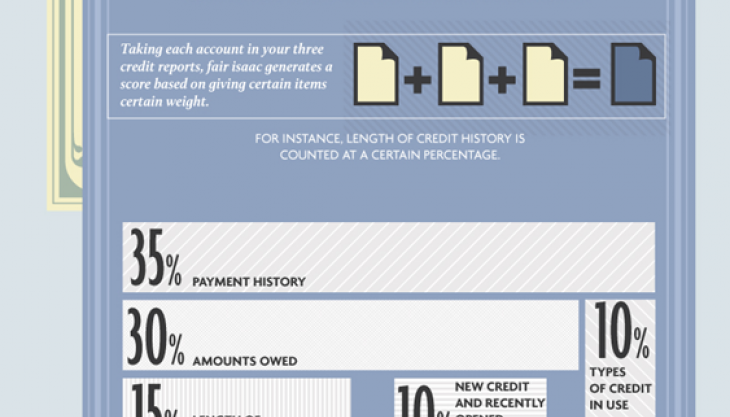What’s The Difference Between a Bankruptcy Trustee and Attorney
Submitted by Rachel R on Tue, 01/29/2013 - 9:51am

When your financial difficulties reach the stage of being completely overwhelming, it may be time to consider filing for bankruptcy. If you’re not familiar with the process, however, it can seem difficult to know where to get started. The credit and loan industry does a good job at painting bankruptcy as a terrible last-resort. Far from it! Bankruptcy laws were designed to help people move past their dire circumstances and start over. If you're contemplating this step but are confused about the roles of some of the individuals involved in the process, including the bankruptcy attorney and the bankruptcy trustee, here’s what you need to know.
Bankruptcy Attorney. The bankruptcy attorney is the person you, the debtor seeking relief, hire to help you prepare and submit your bankruptcy filing. It's important to consider hiring a bankruptcy attorney. The preparation of a filing is a long and arduous process and is not something you should try to do yourself. When you hire a good bankruptcy attorney, that is the person who will walk you through the process, tell you all the information they need from you (and there is a lot of it), prepare all the necessary forms and otherwise make sure your filing is in order. With the right bankruptcy attorney as your advocate, you'll have a better understanding of your options and be able to navigate a complex process smoothly.
Image source: sulaimanlaw.com
Bankruptcy Trustee. The federal government holds exclusive jurisdiction over all bankruptcy cases, which means they have to be filed in federal courts with federal judges. But the people who oversee the bankruptcy petition and meetings are the bankruptcy trustees. Typically they are lawyers themselves familiar with these kinds of cases, and they act as a kind of watchdog to make sure that everything proceeds according to federal bankruptcy laws. They are federally appointed professionals, but are separate entities from the courts, supervised under the Department of Justice. They do not offer legal advice and under no circumstances should you try to contact one directly. Always work through the bankruptcy attorney you hire to handle your case.
The bankruptcy trustee reviews the petitions, collects and manages the sale of assets (if needed), collects and distributes funds, and can act as a negotiator between debtors and creditors. The bankruptcy trustee is the one who is really looking to see if you have any non-exempt assets that could be liquidated to pay off creditors.
If you don’t have any non-exempt assets that can be liquidated, a no-asset Chapter 7 bankruptcy trustee’s job is relatively easy. He or she just reviews the petition, clarifies that you don’t have any assets not already protected from liquidation, and that’s about it. If your filing is a Chapter 13 bankruptcy, which involves setting up a payment plan over a number of years to try and pay off as much of your debt as possible, the bankruptcy trustee’s job is more complex because the payment plan will be the subject of intense scrutiny. The problem with the process is that a Chapter 13 trustee gets a commission on each payment made under the plan. Chapter 13 trustees have an incentive to try and get you to pay back as much of your debts as possible, because they get a percentage. That’s why they examine the payment plan so closely. With these incentives in place, it quickly becomes clear why working with a qualified bankruptcy attorney is so important.
Image source: bills.com
Now that you know the players involved and what they do, you should have a clearer picture of what’s involved in getting the fresh start that bankruptcy laws were designed to give you. Speak with a qualified bankruptcy attorney today to discuss your options.
Dedicated to helping residents of North Carolina find the best solutions to their debt problems. Don’t waste another day worrying about your debt. Call +1-833-627-0115 today to schedule a free initial consultation to discuss your bankruptcy options.
Debts Hurt! Got debt? Need help? Get started below!
Serving All of North Carolina
- Bankruptcy Attorneys Raleigh NC (North)
- Bankruptcy Attorney Fayetteville NC
- Bankruptcy Attorney Durham NC
- Bankruptcy Attorneys Wilson NC
- Bankruptcy Attorneys Greensboro NC
- Bankruptcy Attorneys Southport NC
- Bankruptcy Attorneys Wilmington NC
Bankruptcy Attorneys Raleigh NC (North)
6616 Six Forks Rd #203 Raleigh, NC 27615 North Carolina
Tel: (919) 847-9750

Bankruptcy Attorney Fayetteville NC
2711 Breezewood Ave Fayetteville, NC 28303 North Carolina
Tel: (910) 323-2972

Bankruptcy Attorney Durham NC
1738 Hillandale Rd Suite D Durham, NC 27705 North Carolina
Tel: (919) 286-1695


Bankruptcy Attorneys Greensboro NC
2100 W Cornwallis Dr. STE O Greensboro, NC 27408 North Carolina
Tel: (336) 542-5993

Bankruptcy Attorneys Southport NC
116 N Howe St. Suite A Southport, NC 28461 North Carolina
Tel: (910) 218-8682

Bankruptcy Attorneys Wilmington NC
116 N. Howe Street, Suite A Southport, NC 28461 North Carolina
Tel: (910) 447-2987
